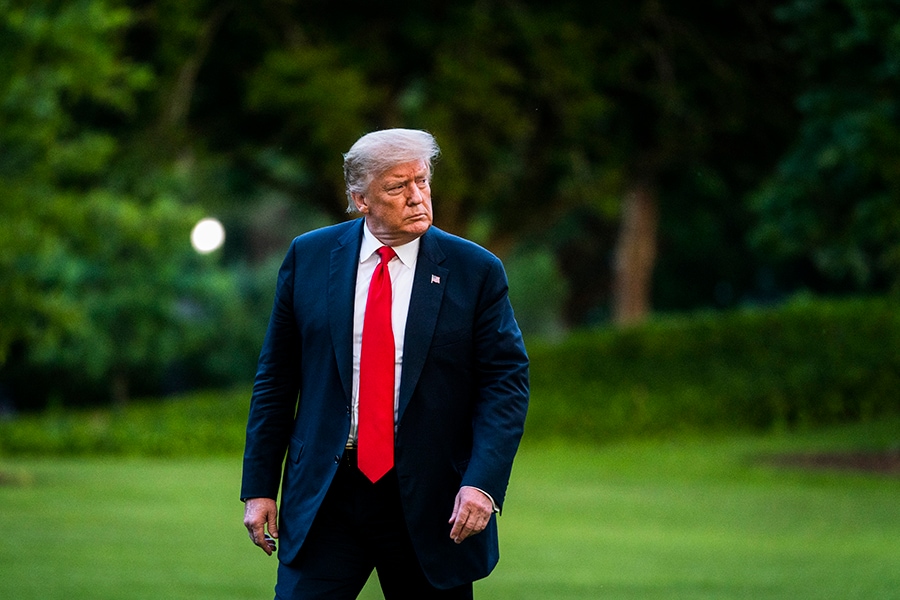
President Trump has tools to pressure China. Will he use them?
Opinion: History will not be kind to those who did nothing to try to stop Beijing's human rights abuses
 Image: Drew Angerer/Getty Images
Image: Drew Angerer/Getty Images
Much of the focus on China in recent months has been over the coronavirus that originated there late last year. But that has hardly slowed Beijing’s assault on fundamental freedoms and human rights, from the brutal repression of the Uighurs to choking off Hong Kong’s limited autonomy.
Congress has acted with admirable alacrity and unanimity to pass tough bills allowing for the imposition of sanctions against the Chinese officials and enterprises behind these outrages. It is now for President Donald Trump, who has shown little enthusiasm so far for tangling with President Xi Jinping over human rights, to use the tools that Congress has placed at his disposal to show Beijing that its transgressions have consequences.
The new national-security law for Hong Kong is the most current and most publicized example of Xi’s repressive, nationalistic policies. The measure severely erodes Hong Kong’s civil and political freedoms, undermining the “one country, two systems” model that China pledged when the British colony reverted to Beijing’s rule in 1997. One of the first arrests under the new law was of a protester with a pro-independence flag, the display of which is now a criminal offense. As a result, a bipartisan push is now underway in Congress to grant refugee status to certain Hong Kong residents.
But while Hong Kong has garnered the most attention in the West, it is hardly the sole, or even the worst, of the Chinese government’s systemic violations of elemental human rights. These are among other recent developments:
— A new report from the Jamestown Foundation has exposed chilling details of official measures to shrink the Uighur population, including sterilization and forced abortions. The report by Adrian Zenz, a leading authority on the mass detention of Uighurs in prison camps, found that while China has long sought to manage its vast population, the draconian controls in the Western region of Xinjiang were intended “to suppress minority population growth” while boosting the majority Han population through increased births and migration. Natural population growth in the region, the report found, had “declined dramatically.”
©2019 New York Times News Service




